Look deeper at the story of Jacob and Esau and learn from Rabbi Isaac the powerful truth about the importance of the choices we make and how it is even more important than the Nature versus Nurture argument! Realize the power of God’s Spirit in your life to overcome sin through this amazing teaching on the generations of Abraham, Isaac and Jacob and learn the reason Esau lost the blessing of the firstborn and how his wrong choices not only affected him but his whole lineage down through the ages… even playing a part in end-time prophecy!
Teaching For Shabbat of November 18th, 2023
(Donate and support this Ministry by clicking here)
Torah: Genesis 25:19-28:9
Haftarah: Malachi 1:1-2:7
Toldot (תּוֹלְדֹת)— Hebrew for “generations” or “descendants,” it is the sixth weekly Torah portion(פָּרָשָׁה, parashah) in the annual cycle of Torah readings and the second word in the parashah. The parashah tells of the conflict between Jacob and Esau, Isaac’s passing off his wife Rebekah as his sister, and Isaac’s blessing of his sons and covers Genesis 25:19–28:9.
Torah Parashah Toldot Summary
Genesis 25:19-28:9
Isaac and Rebecca endure twenty childless years, until their prayers are answered and Rebecca conceives. She experiences a difficult pregnancy as the “children struggle inside her”; G‑d tells her that “there are two nations in your womb,” and that the younger will prevail over the elder.
Esau emerges first; Jacob is born clutching Esau’s heel. Esau grows up to be “a cunning hunter, a man of the field”; Jacob is “a wholesome man,” a dweller in the tents of learning. Isaac favors Esau; Rebecca loves Jacob. Returning exhausted and hungry from the hunt one day, Esau sells his birthright (his rights as the firstborn) to Jacob for a pot of red lentil stew.
In Gerar, in the land of the Philistines, Isaac presents Rebecca as his sister, out of fear that he will be killed by someone coveting her beauty. He farms the land, reopens the wells dug by his father Abraham, and digs a series of his own wells: over the first two there is strife with the Philistines, but the waters of the third well are enjoyed in tranquility.
Esau marries two Hittite women. Isaac grows old and blind, and expresses his desire to bless Esau before he dies. While Esau goes off to hunt for his father’s favorite food, Rebecca dresses Jacob in Esau’s clothes, covers his arms and neck with goatskins to simulate the feel of his hairier brother, prepares a similar dish, and sends Jacob to his father. Jacob receives his father’s blessings for “the dew of the heaven and the fat of the land” and mastery over his brother. When Esau returns and the deception is revealed, all Isaac can do for his weeping son is to predict that he will live by his sword, and that when Jacob falters, the younger brother will forfeit his supremacy over the elder.
Jacob leaves home for Charan to flee Esau’s wrath and to find a wife in the family of his mother’s brother, Laban. Esau marries a third wife—Machalath, the daughter of Ishmael.
New Studies for Deeper Understanding…
For further Dvar Torah study on parashah “Toldot”, please enjoy the latest below video teaching… Listen and learn from Rabbi Isaac as he takes your understanding to an even deeper level! Enjoy and be blessed!
Haftarah (Prophets) Summary
Malachi 1:1-2:7
This week’s haftorah opens with a mention of the tremendous love God harbors for the children of Jacob, and the retribution He will visit upon the children of Esau who persecuted their cousins. This follows the theme of this week’s Torah reading, whose two protagonists are Jacob and Esau.
The prophet Malachi then rebukes the kohanim (priests) who offer blemished and emaciated animals on God’s altar:
“Were you to offer it to your governor, would he be pleased or would he favor you? . . . O that there were even one among you that would close the doors [of the Temple] and that you would not kindle fire on My altar in vain!”
The haftorah ends with a strong enjoinder to the kohanim to return to the original covenant that God had made with their ancestor, Aaron the High Priest.
“True teaching was in his mouth, and injustice was not found on his lips. In peace and equity he went with Me, and he brought back many from iniquity.”
We hope these weekly Torah teaching bless you in your spiritual understanding and growth! As we are solely supported by your Tzedakah charity, please consider supporting this ministry for the continued spread of Truth by giving a love offering here.
Also if you have a need for prayer, please write us and let us know how to pray for you and we feel privileged to be intercessors in prayer for all our worldwide family!
Don’t forget to…
– GO to our YouTube channel and…
– LIKE the videos
– SUBSCRIBE to our channel
– SHARE our YouTube channel
– SUPPORT our Worldwide outreach
– FOLLOW us on Instagram
– FIND us on Facebook, as well as…
– SHINE THE LIGHT by spreading our website: https://www.calledoutbelievers.org with your family and friends on Facebook as well as your other Social Media platforms!
Torah Parashah teaching with video and audio and illustrations by Rabbi Isaac. © Assembly of Called-Out Believers. Use by Permission.
Website: www.CalledOutBelievers.org




One Comment
Thank you very much to share extremely important divine information through all your teachings. What a blessing you are in such a confused greedy arrogant world
May God bless you Rabbi Isaac
Kind regards
Helen